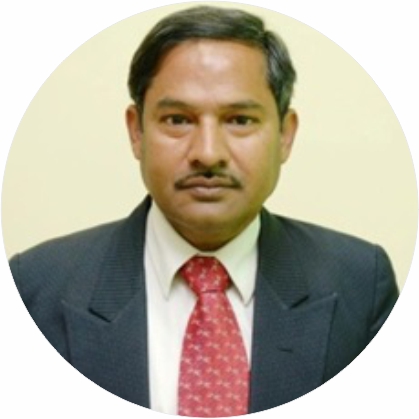Dr. Rakesh Kumar Jain
Professor and Associate Dean, School of Engg. and Technology Professor and Associate Dean, School of Engg. and Technology
Shobhit Institute of Engineering & Technology
(A NAAC Accredited Deemed to-be University) Meerut
Dr. R.K. Jain is a Professor & Associate Dean of School of Engineering & Technology at Shobhit Institute of Engineering and Technology (Deemed to-be University), Meerut, where he has been teaching and doing research with the collaboration of BHU, Varanasi and BARC, Mumbai. Prof. R.K. Jain obtained his Ph.D. degree from the number one rated university of India, the Banaras Hindu University in 1990. He holds an all-through good academic record. After a brief period of SRA at GNDU, Amritsar, he got opportunity of Postdoctoral fellowship under TRIL programme, Trieste in Rome from November, 1997 to July 2001. He worked on Cosmic Radiation and calculated the radiation doses at different altitudes using passive detectors at ANPA (National Agency for Environmental Protection), Rome. He also worked as Postdoctoral Fellow at Seoul National University, Seoul, S. Korea from August, 2001 to April, 2002 and was involved in “Dark Matter Search” project. He has also got Postdoctoral fellowship at the department of Physics, North Carolina State University, Raleigh, USA from May, 2002 to June, 2003 and worked on low intensity and low- energy proton beams for the development of low –energy proton detectors (needed to detect protons emitted in neutron beta decay). He has also visited several labs and delivered lectures in abroad such as ICTP, Trieste, Italy, Institute fur Strahlen und Kernphysik, Der University, Bonn, Nusallee, Germany, Houston University, Houston, USA. He has attended and presented research papers in International/National conferences/Seminars/Symposium in abroad. He has awarded Confederation of Education Excellence (CEE) Teacher’s Award 2014 in recognition of outstanding contribution “No. of National/International/Journals Published”. Function was held on 6 September 2014 at Crowne Plaza, Rohini, New Delhi.



